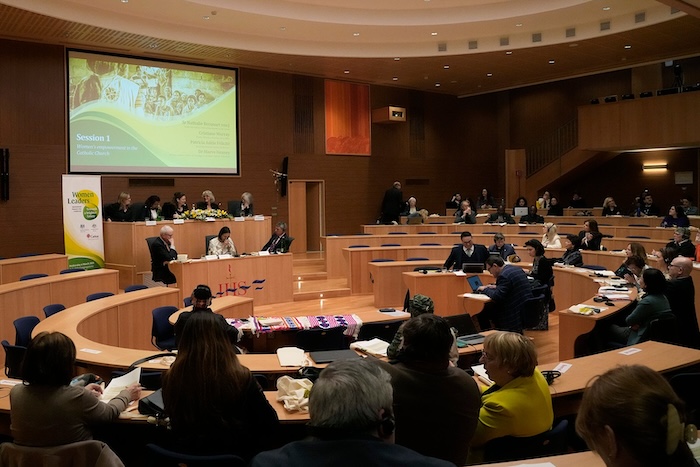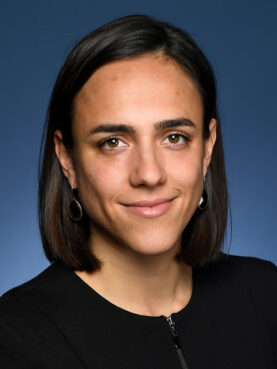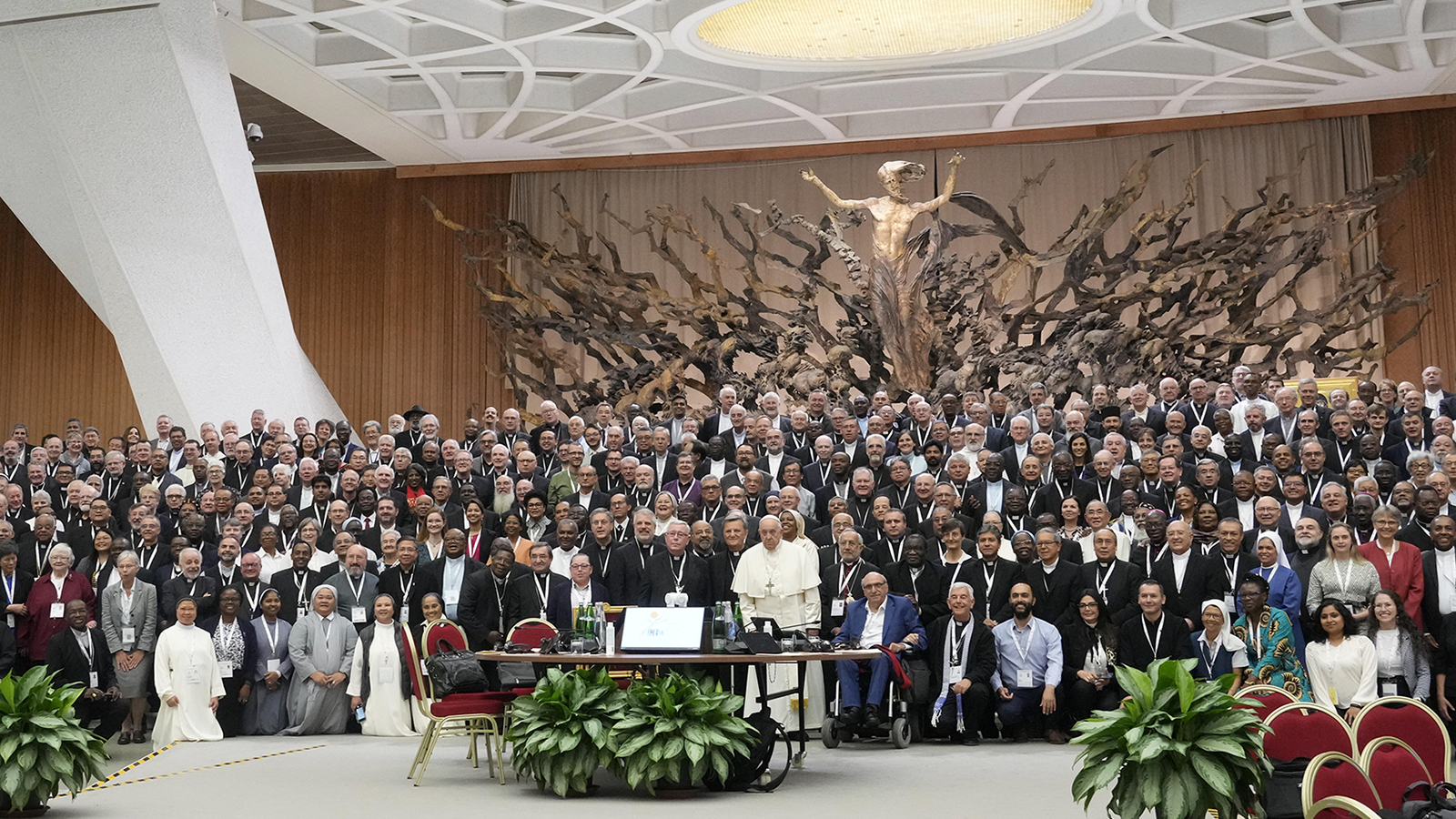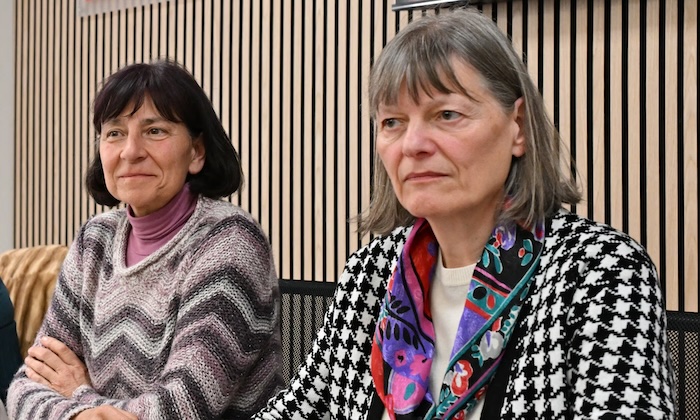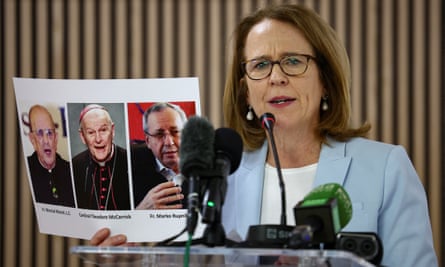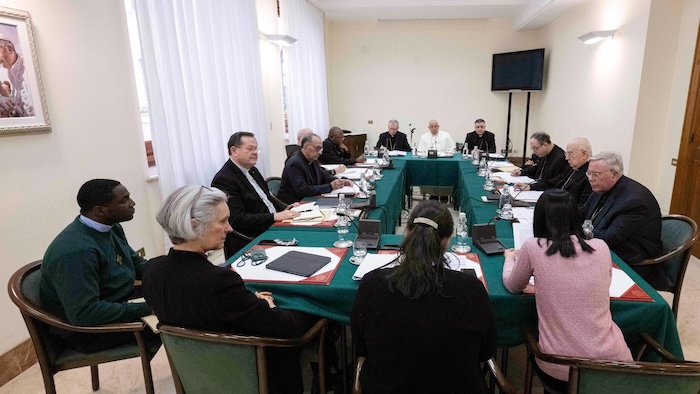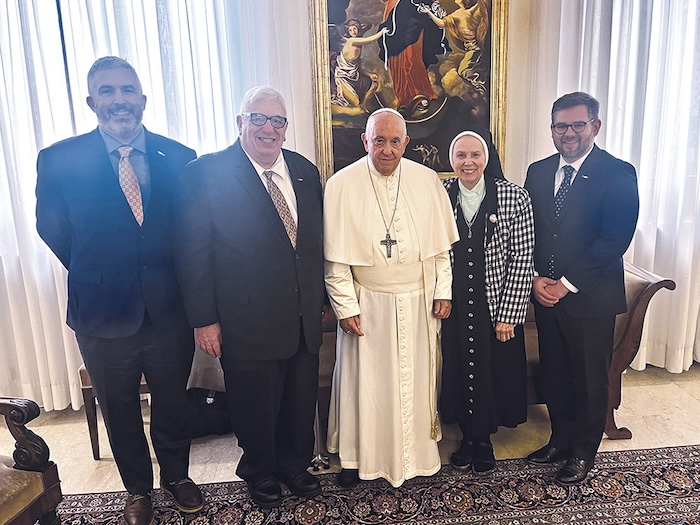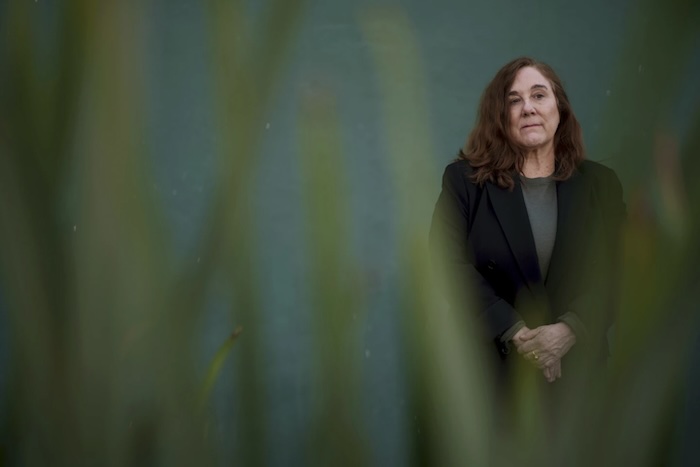
On Wednesdays, the support group meets over Zoom. The members talk about their lives, their religious families and their old parochial schools. But mostly, they are there to talk about the sexual abuse they suffered at the hands of Catholic nuns.
The topic deserves more attention, they say. The sexual abuse of children by Catholic sisters and nuns has been overshadowed by far more common reports of male clergy abuse. Women in religious orders have also been abuse victims — but they have been perpetrators too.
“We’ve heard so much about priests who abuse and so little about nuns who abuse that it’s time to restore the balance,” said the group’s founder, Mary Dispenza, herself a former nun, in a speech to abuse survivors last year.
Dispenza, who endured abuse from both a childhood priest and a nun in her former order, started the online support group five years ago with the Survivors Network of those Abused by Priests, or SNAP. More victims had been contacting her in the wake of #MeToo, as they reassessed past sexual abuse. She has since seen a growing awareness of abusive nuns at former Catholic orphanages and Native American boarding schools.
“The general public would rather not consider the fact that religious women rape, molest and torture children,” Dispenza told The Associated Press. Women are seen as nurturers and caregivers, an assumption only heightened with the “spiritual halo” of religious women.
“It’s something most of us don’t want to entertain or really believe,” she said.
NEW LAW OFFERS CHANCE FOR JUSTICE
Before she found the support group and its 10 or so members, Gabrielle Longhi had spent years looking for someone with a story like hers, once posting in the comments of SNAP’s website: “I never hear about abuse by nuns.”
Now 66 and living in Los Angeles, Longhi was a sophomore at Stone Ridge School of the Sacred Heart in Bethesda, Maryland, when she alleges a teacher, who was then a Catholic sister with the Society of the Sacred Heart, sexually abused her in an office.
Unlike most child sexual abuse victims, she spoke up right away. She told other teachers, her sister and friends that Sister Margaret Daley had tried to sexually force herself on Longhi. Neither her parents nor the police were notified.
“She also kind of retreated after that. She became more closed down,” said her sister, Carol O’Leary, who was then a student at Stone Ridge’s middle school. The sisters say they were soon asked to leave Stone Ridge.
Longhi always wondered if there were other victims. Daley, her alleged abuser, left the order in 1980 and died in 2015.
Last year, Longhi learned from another support group member that Maryland was removing its civil statute of limitations for child sex abuse victims. After the new law went into effect, Longhi sued her former school and the religious order.
Stone Ridge, which has educated Kennedys and the daughters of other Washington luminaries, sent a letter to its community about the allegations last fall. The school declined to comment further on active litigation.
The Society of the Sacred Heart declined to discuss the allegations, but issued a statement saying the order and its schools have implemented robust child protection policies. “We are deeply saddened,” the statement read. “Our prayers go out to all involved in this matter, and to all survivors of sexual abuse.”
An anticipated constitutional challenge to Maryland’s law is pending, but the policy change “makes all the difference in the world,” Longhi said. “Before you have no case and now you do.”
‘IT WAS ABUSE. I INTERPRETED IT AS LOVE.’
Paige Eppenstein Anderson is still hoping for her day in court. Like many group members, it took her decades to see that what happened to her was abuse, and once she did in 2020 at age 40, the statute of limitations had run out on her claim in her home state of Pennsylvania.
“It was abuse. I interpreted it as love,” she said of the sexual relationship she had as a student with a Catholic school teacher, who later joined a religious order.
As a teenager, she spent much of her free time with her teacher. Their bond was so noticeable that a yearbook entry from a friend called her the woman’s “companion.”
“It was very confusing to me,” Eppenstein Anderson said.
Anne Gleeson was also nearly 40 and in therapy before she understood that she was sexually abused for years, starting at age 13, by a nun who was 24 years her senior. She received a settlement from the Sisters of St. Joseph of Carondelet in 2004.
“The nun brainwashed me into thinking we were head over heels in love,” she said. “God’s love, that’s why no one else could know about it — it was so special.”
A longtime SNAP activist in St. Louis, Gleeson had felt that the advocacy group’s name — which only mentioned those abused by priests — neglected victims like her.
The nun abuse group brought “a great sense of relief,” she said.
LITTLE TRACKING OF ABUSIVE NUNS
Few dioceses or religious orders publicly list abusive nuns — a fact group members want to change. The advocacy group Bishop Accountability lists 172 Catholic sisters who have been accused of sex abuse.
“I feel that it’s vastly underreported,” said Marya Dantzer, a group member who settled her nun abuse case in Michigan in 1996.
Dantzer noted that nuns, especially as teachers, arguably spend more time with young people than priests.
For years, Dispenza and others have been asking without success for the Leadership Conference of Women Religious — which represents two-thirds of U.S. Catholic sisters — to allow nun abuse survivors to speak at their annual meeting.
“We agree with SNAP that women religious need to keep working for the healing of victims and the prevention of further abuse and that hearing directly from survivors is essential,” said Sister Annmarie Sanders, LCWR spokesperson, in an email.
Sanders said the LCWR meeting was not “the proper venue for discussion on this issue.” Victims should instead contact their abuser’s religious order.
Each of the more than 400 U.S. religious institutes for women is relatively autonomous.
In a 2019 speech about Catholic sex abuse, LCWR’s then-president Sharlet Wagner acknowledged “that in some instances, our own sisters have been perpetrators of the abuse.”
That speech followed an apology for abuse from an international organization of Catholic sisters, as well as Pope Francis’ creation of an abuse reporting system, which includes nuns.
The support group members would like the church to accept more responsibility, and for all religious orders to expel known abusers from their ranks.
In the meantime, the support group continues to welcome new members, even as others move on. It remains mostly women, many over age 60.
Dispenza recently stepped back from facilitating the group, with Dantzer taking over as leader.
After seeing a growing need, Dispenza opened a second group in 2022 that includes international victims of nun abuse, and she will focus her efforts there.
Members of the international cohort are contemplating the launch of nun abuse support groups in Peru and the Balkans. They have put their contact information on the SNAP website, there for anyone looking for stories like their own.
Complete Article ↪HERE↩!

